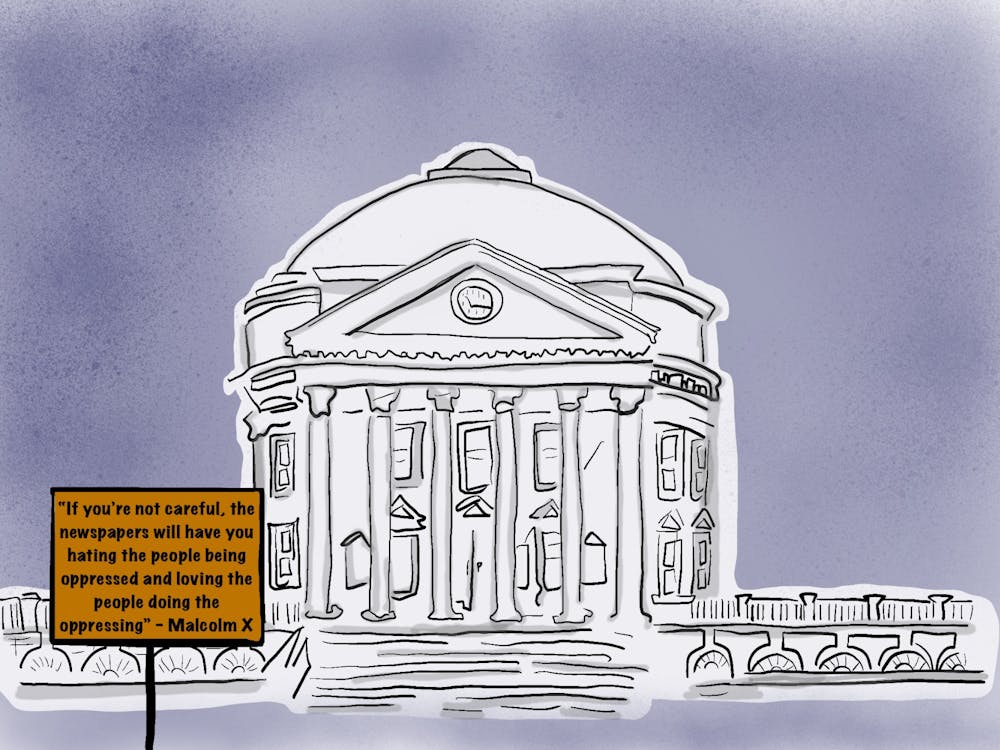More than a century ago, Nellie Bly checked herself into an insane asylum. She wasn't a lunatic, but she wanted to document the inhuman conditions people in these alleged sources of care were subjected to. So Bly didn't tell the asylum keepers she was a reporter.
More than a decade ago, ABC reporters got jobs working in a Food Lion where they filmed some very questionable practices in the meat department. Food Lion didn't challenge the accuracy of the reporting in court. The company challenged ABC's reporting methods. The reporters who worked and filmed in the meat department lied on their applications, provided false references, and therefore, Food Lion argued, committed fraud and were trespassing when they went behind the meat counter with their hidden cameras.
A jury sided with Food Lion, awarding the company $5.5 million. A judge later reduced that to $315,000. Another judge decided the reporters shouldn't have lied, but Food Lion deserved only $2 in damages.
The argument news gatherers make in these situations is that some issues are so important that reporters are justified in being sneaky to get information to the public. I believe that's true. If Bly had identified herself as a reporter and asked about patient abuse, it's doubtful the folks doing the mistreating would have come clean from a sense of duty or shame. If ABC had called Food Lion and asked about meat being tossed on the floor and old hamburger getting ground into fresh burger, the story probably wouldn't have gotten very far.
But those are extraordinary circumstances. In the normal news-gathering process, it's only fair that people talking to reporters or columnists or producers know that's what they're doing.
Ashley Ford wrote a column for The Cavalier Daily about the dining service's compostable carry out boxes and eating utensils. Ford's point was that those things degrade only in industrial strength compost piles, and when those operations have more compostable material than they can handle, the allegedly earth-friendly waste ends up in a landfill. So she offered an alternative plan.
It was Ford's first column. All sorts of things went wrong.
Ford got a lot of her information from a blog written by Kendall Singleton, sustainability coordinator for the University's dining services. That's a fine place to start, but once she'd gleaned enough from the blog to ask intelligent questions, Ford should have talked to Singleton.
She did, sort of. Ford sent Singleton an e-mail to verify that the compostable containers and utensils are made from corn and that such corn-based products need a heavy duty composting facility to decompose in. Singleton's e-mailed reply seems to confirm both of those things, though it does make reference to "corn/sugar based plastics."
The first problem with that exchange is that Ford didn't identify herself as a Cavalier Daily writer. The second problem is that she didn't pick up on the ambiguity of "corn/sugar based plastics." Do sugar-based plastics compost differently than corn-based plastics?
I don't know, but Ford should have asked. And Ford certainly should have told Singleton that her answers were likely to appear in The Cavalier Daily.
Singleton thought she was answering a question for some student curious about corn-based plastics, so that's the context within which Singleton constructed her e-mailed response.
And that gets us to another problem. Ford didn't mean for Singleton's e-mail response to be quoted in her column. The quote was inserted by an editor. Singleton assumed the editor knew best, so she didn't question that decision.
The Cavalier Daily's policy is that writers identify themselves and their role at the paper whenever they conduct an interview. Editors also expect writers to give interviewees some idea of the nature of the story or column they're working on. On the non-opinion side of the paper, reporters are supposed talk to sources in person or on the phone. E-mails are a last resort reserved mostly for people who simply can't be reached any other way, and then only with the managing editor's approval.
No one told Ford any of that.
So this was a failure on several levels. It's also an opportunity to learn and to make improvements in the system. Ford has learned that she needs to clearly identify herself when she's talking to someone for a column or story. I hope she's learned that more and deeper research leads to better stories and columns.
The editors have learned they shouldn't assume that everyone who writes for The Cavalier Daily automatically knows that sort of thing. New writers need to be trained. I hope editors have learned that making significant changes to writers' copy late in the process without writers' participation can lead to trouble.
I hope Ford and her editors will apologize to Singleton. I suspect The Cavalier Daily will need to talk to her again. She, and the paper's other readers, need to know this was a mistake, or a series of mistakes, and not the way the newspaper customarily does business.
Tim Thornton is the ombudsman for The Cavalier Daily. His column appears on Mondays.




